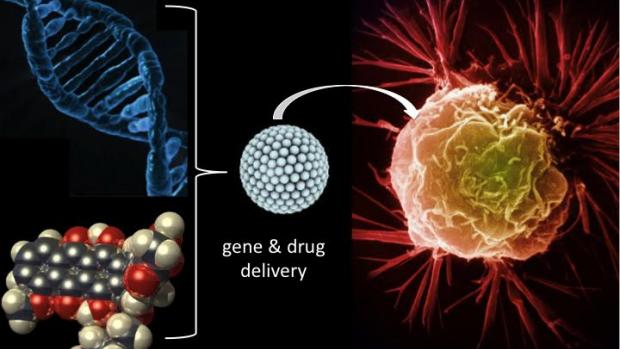NYU Researcher Develops Unique Protein-based Delivery System for Dual Gene and Drug Therapies
Jin Kim Montclare Receives NSF Funding for Work That Could Lead to Treatment for Multi-Drug Resistant Cancers and Other Disorders

The National Science Foundation (NSF) recently funded research aimed at developing an engineered protein-lipid system that simultaneously delivers genes and drugs for the potential treatment of multi-drug resistant cancer cells. The dual-delivery system could also apply to diabetes and other conditions requiring a variety of therapeutic approaches.
Jin Kim Montclare, an associate professor of chemical and biomolecular engineering at the New York University Polytechnic School of Engineering, received the three-year, $300,000 grant. Previously, Montclare engineered a protein and lipid mixture that could deliver genes into a wide range of living cells with greater efficiency than commercial reagents. By enabling nucleic acid delivery experiments across many different types of cells, GeneTrain, as she called her system, was expected to expedite and expand the discovery of new siRNA or DNA-based therapies. (siRNA silences or inhibits undesirable genes, while plasmid DNA aids in the introduction of desirable genes.)
Her new research revolves around a protein-lipid system (lipoproteoplexes) capable of carrying not only nucleic acids for gene therapy but small-molecule therapeutic drugs at the same time. The lipoproteoplexes will effectively complex with siRNA, encapsulate a drug such as the anticancer agent curcumin or doxorubicin without the need for chemical modification, and trigger release of the dual payload once inside the cell.
An engineered protein-lipid mixture has several advantages over polymers, which have traditionally been used in therapeutic delivery systems; most notably, it breaks down naturally in the body without posing the physical risks that synthetics do as they degrade.
The lessons learned from Montclare’s studies may also one day be employed for delivery of other genes and agents with applications extending to non-medical industries, including personal care, cosmetics, and agriculture.




